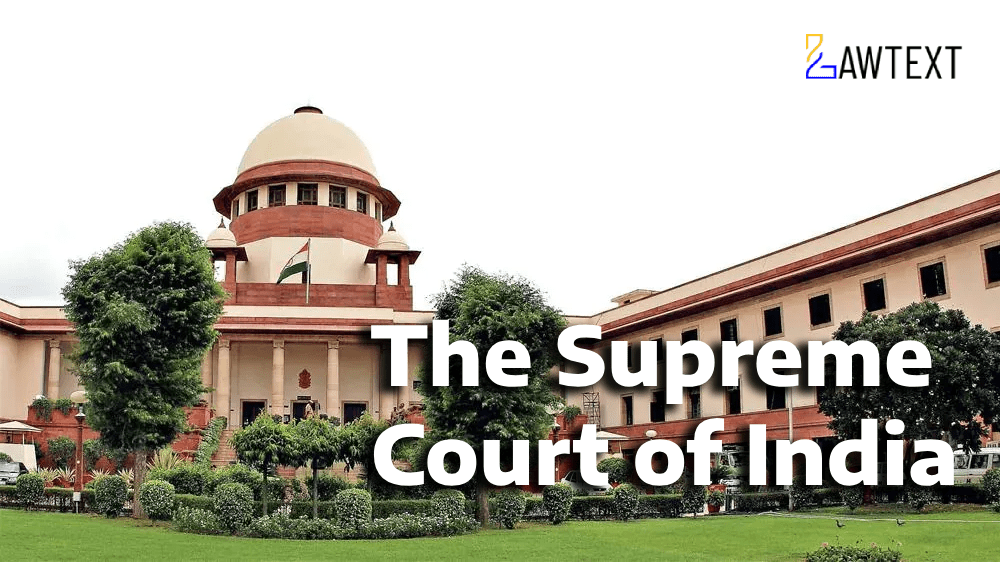Acquittal in Brutal Murder Case: Supreme Court Quashes Convictions in Lack of Legally Admissible Evidence. When suspicions fail legal scrutiny, justice demands proof beyond doubt.

CASE NOTE & SUMMARY
The Supreme Court of India overturned the life imprisonment conviction of the appellants for a brutal murder, citing a lack of legally admissible evidence and flaws in the prosecution's case. The case involved charges under Sections 364, 302, 201, 212, and 120-B of the IPC. The court emphasized the inadmissibility of confessions to police, procedural lapses in handling evidence, and the importance of proving guilt beyond a reasonable doubt. It reiterated that brutality cannot override the legal principle of proof.
-
Facts of the Case (Para1–2)
- Gurpal Singh was abducted and brutally murdered on July 8, 2013, with his dismembered body found the following day.
- Accused, including Randeep Singh, were convicted for offenses under IPC Sections 364, 302, 120-B, and 201 by the Sessions Court, with sentences upheld by the High Court.
-
Prosecution's Evidence (Para3–8)
- Relied on eyewitness testimony (PW-26), CCTV footage from a nearby bank, and recovery of a weapon and the deceased’s vehicle.
- Significant omissions in PW-26’s testimony were found, and no test identification parade was conducted.
- Husband of PW-26, an alleged eyewitness, was not examined, raising an adverse inference against the prosecution.
-
Inadmissible Evidence: Confessions and CCTV Footage (Para9–12)
- CCTV footage lacked a Section 65B certificate under the Evidence Act and was deemed inadmissible.
- PW-1 (Bank Manager) and PW-24 (CCTV Engineer) failed to verify the integrity of the footage.
- Police-used confession statements of the accused were inadmissible under Sections 25–27 of the Evidence Act.
-
Circumstantial Evidence (Para12–13)
- Prosecution’s reliance on circumstantial evidence did not meet the five-principle test laid down in Sharad Birdhichand Sarda vs. State of Maharashtra.
- The discovery of the deceased’s body and related items lacked a direct link to the accused.
-
Judicial Oversight (Para14–16)
- The trial and High Court relied on inadmissible evidence, including police confessions and unverified CCTV footage.
- Section 27 exceptions were misapplied, incorporating inadmissible statements.
-
Judgment and Acquittal (Para17–18)
- The Supreme Court quashed all convictions, ruling that the prosecution failed to establish guilt beyond reasonable doubt based on legally admissible evidence.
Acts and Sections Discussed:
-
Indian Penal Code (IPC):
- Section 364: Kidnapping for murder
- Section 302: Murder
- Section 201: Causing disappearance of evidence
- Section 212: Harboring offender
- Section 120-B: Criminal conspiracy
-
Indian Evidence Act, 1872:
- Sections 25–27: Admissibility of confessions and discoveries
- Section 65B: Admissibility of electronic evidence
-
Code of Criminal Procedure, 1973:
- Section 161: Statements to police
Ratio Decidendi:
-
Admissibility of Evidence:
- Confessions to police are inadmissible unless they lead to a discovery under Section 27 of the Evidence Act.
- In the absence of a Section 65B certificate, electronic evidence like CCTV footage is inadmissible.
-
Eyewitness Credibility:
- Significant omissions and lack of corroborative identification undermine the reliability of eyewitness testimony.
-
Circumstantial Evidence:
- Failure to satisfy the five-principle test for circumstantial evidence invalidates the prosecution’s case.
-
Burden of Proof:
- Even in brutal offenses, moral conviction cannot substitute for proof beyond reasonable doubt.
Subjects:
Criminal Law, Evidence Law, Murder Trial, Admissibility of Evidence
Murder Acquittal, Indian Penal Code, Evidence Act, Circumstantial Evidence, Procedural Lapse
ISSUE OF CONSIDERATION
RANDEEP SINGH @ RANA & ANR. VERSUS STATE OF HARYANA & ORS.
Citation: 2024 LawText (SC) (11) 222
Case Number: CRIMINAL APPEAL NO. 297 OF 2024
Date of Decision: 2024-11-22
Case Title: RANDEEP SINGH @ RANA & ANR. VERSUS STATE OF HARYANA & ORS.
Before Judge: (Abhay S Oka .J., Ahsanuddin Amanullah .J. , Augustine George Masih .J.)
Appellant: RANDEEP SINGH @ RANA & ANR.
Respondent: STATE OF HARYANA & ORS.

